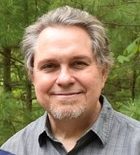The Research Computing Series is a great opportunity to learn about the research on campus as well as the computing resources available to faculty, staff and students. The Spring 2025 Research Computing Series consists of two virtual sessions on Microsoft Teams.
HTCondor with Christina Koch and Greg Thain
This session features HTCondor representatives Christina Koch and Greg Thain from the Center for High Throughput Computing at the University of Wisconsin. Koch is a research computing facilitator who helps researchers scale up their computing on HTC resources and also contributes to various projects that support the development and deployment of high throughput technologies and infrastructure. Thain is a senior software engineer who has worked on the HTCondor HTC system since 2004. They covered topics such as how HTCondor implements HTC, the process for submitting your first batch jobs, and advanced Condor tricks you might not know.
Postdoctoral Researcher Sadjad Arzash
This session features Sadjad Arzash, a postdoctoral researcher and theoretical physicist with a keen interest in understanding the emergent properties of biological tissues and biopolymer networks. Arzash’s postdoctoral research explores the mechanics of epithelial tissues through the lens of learning and adaptation, using theoretical and computational approaches. He is currently a postdoctoral researcher at Georgia Tech working with Prof. Shiladitya Banerjee. Previously, he was a postdoc in the Physics Department at Syracuse University from 2022-2025, working jointly with Prof. Lisa Manning (Syracuse) and Prof. Andrea Liu (UPenn). He earned his PhD from Rice University in 2021.

